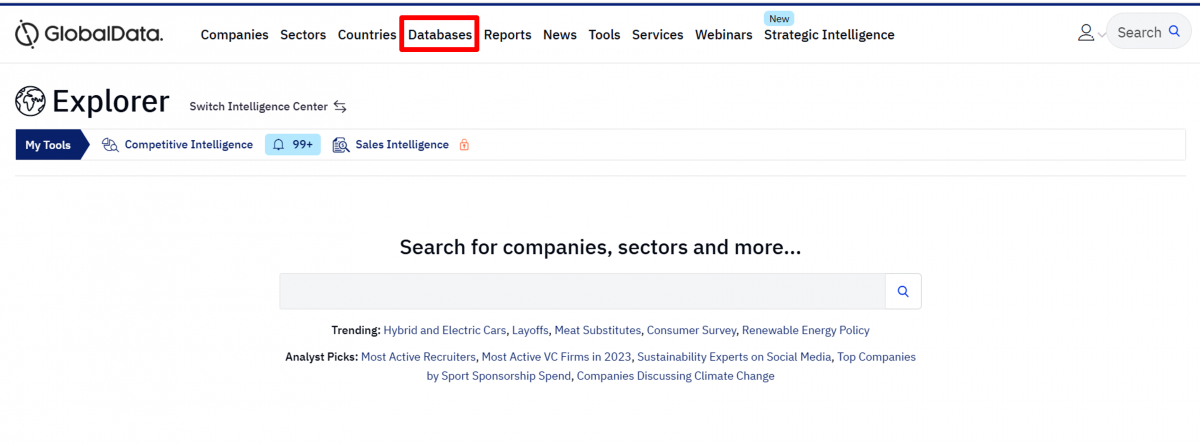How to find... - Tuesday 18 February 2025
Find job opportunities with GlobalData Explorer

GlobalData Explorer (GDX) is a powerful set of databases containing information on markets, companies, countries and products. You can use it in two ways: either by typing keywords into the search bar on the home page to find different types of information on a subject, or by selecting a particular database to find a specific type of information. We will develop this second method below in order to find job offers.
To find job offers abroad in a specific sector, you can quickly access a detailed analysis of the job market via the Job Analytics database on the GlobalData Explorer platform. To access it, click on the ‘Databases’ tab, and choose Job Analytics.
...
Read MoreRate this content
How to find... - Tuesday 17 December 2024
Finding market shares with GlobalData Explorer

GlobalData Explorer (GDX) is a powerful set of databases containing information on markets, companies, countries and products. You can use it in two ways: either by typing keywords into the search bar on the home page to find different types of information on a subject, or by selecting a particular database to find a specific type of information. We will develop this second method below.
For market share research on an economic sector, on companies or on specific products, go to the ‘Databases’ tab in GlobalData Explorer :

Among the resources accessible...
Read MoreRate this content
How to find... - Friday 25 February 2022
Find complementary market data

In our “how to find information about a business sector” highlight, we explained how to find full market reports on our databases. Unfortunately, not all market reports are available in full text in our subscriptions.
This concerns particularly the market reports form MarketResearch.com, but also some industry profiles, for example those of iCrowdNewswire. Though those resources aren’t so much cited in academic articles as other like Statista for example (more than 200 citations in CAIRN articles and books, versus only 1 for MarketResearch.com, 165 000 vs 36 000 in Google Scholar), the subjects they cover can be of interest for certain research.
There are ways to counter this lack of data, by using other ...
Read MoreRate this content
How to find... - Friday 10 April 2020
Journal Search
Journal Search is a tool on Discovery that allows you to find any periodical the K-lab subscribes to.
The K-lab subscribes to many periodicals: general press, professional journals, academic journals... While a few titles are only accessible in paper version, the majority is now available online. Access can be different from one title to another, depending on the database they are available on.
To know where to find them, simply search for the title of the newspaper or journal in the "Journal Search" at the top of the page on Discovery.

By clicking on the result you are interested in, you will then be able to find out how to read the articles in the "View online" section. In this example, Le Monde is available on Business...
Read MoreRate this content
How to find... - Tuesday 06 November 2018
Royalty-free pictures and videos

This highlight will cover copyright as it is defined by French law. American Copyright (©) cannot be applied in France. It is very different from the French “droit d’auteur”, but it can be used to identify the entity that needs to be contacted to get the authorization to use copyrighted material.
Pictures
There are two types of rights you need to know and respect:
- the author’s copyright: the picture is protected if its originality is proved.
- the subject’s rights:
- if the persons can be recognized (ie if they are not part of a crowd), you need to make sure they have signed an authorization to use their image in the precise context you want to use it in.
- if the picture contains some type of creation (a building for example) that is protected by copyright : you need to make sure...




Comment this content 0 comments